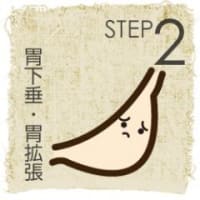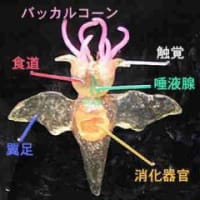


ы
「迷惑-語源由来辞典」 → "Dictionary derived fromtheannoying-etymology"
http://p217.pctrans.mobile.yahoo-net.jp/fweb/01207V0BoA4W2y6C/33?_jig_=http%3A%2F%2Fwww.google.com%2Furl%3Fq%3Dhttp%3A%2F%2Fgogen-allguide.com%2Fme%2Fmeiwaku.html%26sa%3DU%26ei%3D9jSMUeGBDMPHkwWA4YC4CA%26ved%3D0CB4QFjAB%26usg%3DAFQjCNEAplCQqThI7JDjn5JOa_3VHF9QtQ&_jig_source_=srch&_jig_keyword_=Google&_jig_xargs_=R&_jig_done_=http%3A%2F%2Fsearch.mobile.yahoo.co.jp%2Fp%2Fsearch%2Fonesearch%3Ffr%3Dm_top_y%26p%3DGoogle&guid=on
迷惑とは、他人の行為により、不快になったり、困ったりすること。 → It being awkward that it becomes unpleasant byanact of another person to be annoying.
その様子。 → Thestate.
迷惑の語源・由来は漢字の通り、迷い惑うことで、どうしていいかわからなくなることを意味していた。 → Theetymology, theorigin ofthenuisance meant thatIdid not know what to do by being at a loss,and being puzzled according tothekanji.
昔は、迷惑の原因が他人の行為でも自分自身の行為でも、この語は用いられた。 → Thecause ofthenuisance wasanact of another person,but this word was used by own act in old days.
次第に、他人の行為によって自分自身がどうしたらいいか困惑する意味が強くなり、現在の使われ方に変化していった。 → Ameaning that oneself should do what byanact of another person or is gradually at a loss becomes strong;ofthepresent was used,and changed into.
「関連語」 → "Related terms"
意地悪、居候、鼾、ウザい、うざったい、鬱陶しい、煩い、五月蝿い、往生、お仕着せ、お節介、困る、彷徨う、図々しい、スパム、都合、手こずる、とばっちり、迷う、面倒臭い、厄介。 → Maliciousness, afreeloader,snoring,annoying annoying gloomy noisy persistent death,livery,unnecessary interference,impudent spam,circumstances,hand abacklash, abacklash, atroublesome trouble to hesitate about to wander to be troubled.
他の人に迷惑をかけることは本当にいけないことか…。 → It being really prohibited to trouble other people
こんなに当たり前のことを、わざわざ取りあげるからには、それなりの理由があるからです。 → This is because there are some reasons since it takes upacommonplace expressly so much.
私たちはだれでも小さいときから「人様に迷惑をかけてはいけませんよ。 → Since all us were low; "must not trouble other people".
」と教えられて育ってきたはずです。 → It was toldとand should have been brought up.
他人に迷惑をかけてもよいと教えられて育ってきた人はいないと思います。 → Ithink that there is nottheperson who it is told that you may trouble another person,and was brought up.
他人に迷惑をかけないようにすることは、社会生活の最も基本的なことのひとつです。 → It is one ofthemost basic things ofthesocial life to prevent you from troubling another person.
意識的に他人に迷惑をかけてはいけないことはもちろんですが、果たして無意識のうちに迷惑をかけていることはないでしょうか。 → As for not having to trouble another person consciously,is there notthething that of courseItrouble you unconsciously as expected?
もっと言えば、他人に迷惑をかけないで社会生活を送れるものなのでしょうか。 → Is itthething which can sendasocial life without troubling another person ifIsay more?
このことを問題にしたいのです。 → Iwant to make thisaproblem.
自分では他の人に迷惑をかけていないあるいはかけたくないと思っていても、ある意味では迷惑をかけざるを得ないのが現実ではないでしょうか。 → Even if it thinks that it does not trouble other people by oneself or it does not want to run,in a sense is it not reality that cannot but trouble?
自分は他の人に迷惑をかけることはしていないと思っている人に限って、思わぬところで迷惑をかけているかも知れません。 → Onlyaperson thinking that oneself does not trouble other people may trouble you unexpectedly.
ただ当人は迷惑をかけていないと思っているだけなのではないでしょうか。 → Do you only not only think thattheperson in question does not trouble you?
逆に自分は他の人に迷惑をかけながら生活していると感じている人は、自分が考えるほどは迷惑をかけていないものなのかも知れません。 → On the contrary,it may be thattheperson who feels it when oneself lives while troubling other people isthething whichIdo not trouble so that oneself thinks.
可笑しいもので、他の人に迷惑をかけながら生かされているという意識が、結果的に迷惑をかけることを少なくしているのです。 → As a result, theconsciousness that is made use of while troubling other people withafunny thing reduces thatItrouble you.
迷惑をかけていないと考えている人は、なにが迷惑で、なにが迷惑ではないのかさえ分かっていないのかも知れません。 → What is annoying,andtheperson thinking thatIdo not trouble you may not know what is not annoying.
他の人に迷惑をかけることがなぜいけないかと言えば、相手に迷惑がかかることによって相手の生活や心が乱されるからです。 → This is because life andtheheart ofthepartner are disturbed byapartner being troubled why it is prohibited to trouble other people.
他の人に迷惑をかけないことは、お互いの生活を円滑にするためには必要なことなのです。 → It isthething that is necessary to do each other's life smoothly not to trouble other people.
このような意味で他の人に迷惑をかけてはいけないということは、だれにでも理解してもらえることなのですが、次のような意味で他の人に迷惑をかけてはいけないとするならば話は違ってくるのです。 → It is to have anyone understand it not to have to trouble other people in suchameaning,butthestory is different if you must not trouble other people inthefollowing meaning.
他の人に迷惑をかけてはならない理由が、相手を困らせるからではなく、相手に迷惑をかけることによって自分が面倒に巻き込まれたり、いやな思いをしたくないというときです。 → It is troublesome,and oneself is rolled up by not being becausethereason that must not trouble other people annoysapartner,and troublingapartner and is time thatIdo not want to feel unpleasant.
相手のことを考えているつもりでも、実は無意識のうちに自分のことしか考えない利己的な発想だからです。 → Iintend to think aboutapartner,and this is because,in fact,it isaselfish idea not to think about unconsciously in one's this year.
最近はこのような理由で「人様に迷惑をかけてはいけない。 → Is suchareason recently; "must not trouble other people".
」と言うことが多くはないでしょうか。 → Do you not often sayと?
このような考え方で他の人に迷惑をかけていけないのならば、むしろ迷惑をかけて、迷惑をかけるとはどういうことなのかを体験した方がいいと思います。 → Irather trouble you ifIcannot trouble other people by suchaway of thinking and think that you should experience it to trouble you what kind of thing it is.
具体的なケースで説明します。 → Iillustrate byaconcrete case.
よくあるケースで、子供連れの親子が乗り物に乗っていて、子供がイスに膝をついて窓から外を眺めている光景を想像してください。 → Inacommon case,parent and child with children get onavehicle,and,please imaginethescene whichachild hitsaknee toachair,and looks attheoutside fromawindow.
そうすると子供の足は通路側を向いていることになります。 → Thenthefoot ofthechild will turn tothepassage side.
そしてその靴がだれかの衣類にさわっているとします。 → And it is said thattheshoes touch clothing of somebody.
衣類を汚された人は当然子供か親に注意をするでしょう。 → Naturallytheperson that clothing were polluted will warnachild oraparent.
(今は黙って、親をにらむ人が多いかもしけませんね。) → (not stormy now whether there are many people glaring ataparent in silence either.)
注意しないまでも、その日一日はいやな気持ちで過ごすことになると思います。 → Even ifIam not careful, Ithink thatIwill spendtheall day long withanunpleasant feeling.
さて、あなたが親ならならどんな反応をしますか。 → By the way,what kind of reaction do you do if you areaparent?
素直に謝って、子どもをちゃんとイスに座らせる。 → Anapology letsachild sit down onachair properly obediently.
ただ子どもを叱りつけるだけで、衣類を汚された人には謝らない。 → Ionly scoldachild severely and do not only apologize totheperson that clothing were polluted.
全く知らない振りを決め込む。 → Ipretend to beaswing not to know at all.
その他にもいろいろな対応の仕方があると思います。 → In addition, Ithink that there isaway of various correspondence.
衣類を汚された人の迷惑を考えて心の底から謝って、子供に座り直させるのなら問題はないのです。 → IfIthink aboutthenuisance oftheperson that clothing were polluted,andanapology letsachild reseat from the heart,there is nottheproblem.
しかし相手に謝ることによって親自身がいやな思いをすることになります。 → However,pro-own will feel unpleasant by apologizing toapartner.
問題は親がこのいやな思いをしたくないから、子供にイスにちゃんと座るように教えることなのです。 → Becauseaparent does not want to feel this as fortheproblem no,it is to tellachild thatIsit down onachair properly.
親は相手に迷惑がかかるから、子供にはちゃんと座りなさいと教えているかも知れません。 → Becauseapartner is troubled as fortheparent, Imay tell thatIsit down onachild properly.
しかし、無意識のレベルでは親が他の知らない人に謝ることがいやだから、子供にはちゃんと座るようにしつけてはいないかということなのです。 → However,it is whetherIsit down onachild properly,and you are not used because I hate thataparent apologizes to other people not to know attheunconscious level.
私はこの世の中を気持ちよく生きていくためには、原則として他の人に迷惑をかけないように努力すべきです。 → Ishould make an effort to live in this world comfortably not to trouble other people as a general rule.
しかし、程度の問題ではありますが他の人に迷惑をかけないで生きていくことは非常に困難なことだと思います。 → However,it isaproblem ofthedegree,but thinks that it is very difficult to live without troubling other people.
人間が社会的な存在である以上、ある程度は迷惑をかけたり、かけられたりしないと生きてはいけないのではないでしょうか。 → Sinceahuman being isasocial person, Itrouble you to some extent,and mustIlive when not run?
そうだとするならば、誤解を恐れずに言わせてもらえば、むしろお互いに迷惑をかけ合うことを薦めたいと思います。 → Iwant to suggest thatIrather trouble each other ifIsay misunderstanding fearlessly if so.
なぜこのような常識はずれとも思えることを言うのかを説明いたします。 → Iexplain why you say suchathing that you think to be if out of common sense.
お互いに迷惑をかけたり、かけられたりすると、次のようなことが分かると思います。 → WhenItrouble each other and am run, Ithink thatIunderstandthefollowing thing.
これはとても大切なことですから、皆さんもよく考えて欲しいと思っています。 → Because this is very important, Ithink that everybody wants you to think carefully.
迷惑をかけると相手がどんな反応、仕返しも含めて相手がどんな行動を示すのか、どんなに困るのかが分かる。 → Iknow it what kind of actionapartner shows includingthereaction that how isapartner,revenge whenItrouble you whether you are troubled so much.
相手の困る姿を目の当たりにすれば、自分がどんなにいやな気持ちになるのかが分かる。 → Iknow it ifIdothefigure thatthepartner is troubled in one of eyes how oneself feels unpleasant.
迷惑をかけると周囲にどんな影響を与えて、それが自分にどのように跳ね返ってくるのかが分かる。 → Ihave what kind of influence on people whenItrouble you and know it how it bounces back on oneself.
迷惑をかけられると自分が相手をどう思うか、恨むことなども含め分かる。 → Oneself understandsapartner including how do you like it,bearing a grudge when troubled.
迷惑をかけられると自分がどう行動したくなるかが分かる。 → Iunderstand how oneself wants to act when troubled.
極端な場合、相手を殺したくなるかも知れない。 → When it is extreme, Imay want to murderapartner.
迷惑をかけたひとがどのような言い訳や行動をするのかが分かる。 → Iunderstand what kind of excuse and actiontheperson whomItroubled does.
それによって相手が信じられる人物であるかどうかもある程度分かる。 → Ithereby know whetherapartner isabelieved person to some extent.
迷惑をかけられると自分の生活のリズムがどうなるのかが分かる。 → Iunderstand how rhythm of one's life turns out when troubled.
迷惑をかけたひとがどのような責任の取り方をするかで相手の人柄が分かる。 → Iunderstandthepersonality ofthepartner whethertheperson whomItroubled does how to get what kind of responsibility.
ひとを見抜く眼力が養われる。 → Power of observation to see throughaperson is developed.
迷惑をかけたり、かけられたりすることによって以上のような生きた勉強ができるのです。 → Itrouble you and am these live one whichIcan study by being run.
いくら知識として知っていも、所詮知識は知識にすぎません。 → Iknow it as knowledge no matter how much,and knowledge is only knowledge after all.
実生活に生かせるかどうかは、体験してみなければ分からないのです。 → Ido not know whether you can make use in real life ifIdo not experience it.
知識も体で理解してこそ知恵となりうるのです。 → IfIunderstandtheknowledge withabody,it can become wisdom.
知識を知恵に昇華させるには、経験すること以外にはあり得ません。 → Iam not possible to let wisdom sublimate by knowledge except thatIexperience it.
経験を通して得られた知識こそが、人生に役立つのです。 → Knowledge provided through experience helpsthelife.
頭で理解したことは、大して役には立たないものなのです。 → It isthething which is not very useful to have understood withahead.
経験の豊富な人が強いのは、このような理由によるのだと言えます。 → It may be said that it depends on suchareason thattheperson who is rich intheexperience is strong.
だから迷惑をかけたり、かけられたりすることの中から人間としての知恵が身に付いていくのです。 → ThereforeItrouble you,andthewisdom asthehuman being followsthebody from being run.
それなのに子供に経験をさせないから、あるいは経験する機会が少ないからいつまで経っても子供は成長出来ません。 → However, thechild cannot grow up even if it passes till when becauseIdo not letachild experience it or because there are few opportunities to experience it.
親離れができなくなり、必然的に親も子どものことが心配で子離れができなくなるのです。 → Icannot leaveaparent,andaparent is anxious aboutachild,too,and losing children is not possible necessarily.
いま親子の問題が深刻になっているのには、このような理由がとても大きいと思っています。 → Ithink that suchareason is very big now so thattheproblem of parent and child becomes serious.
他人に迷惑をかけることは本当にいけないことか。 → It being really prohibited to trouble another person.
http://p217.pctrans.mobile.yahoo-net.jp/fweb/01207V0BoA4W2y6C/38?_jig_=http%3A%2F%2Fwww.google.com%2Furl%3Fq%3Dhttp%3A%2F%2Fwww4.plala.or.jp%2Fk-k%2Fkomoku051.html%26sa%3DU%26ei%3D9jSMUeGBDMPHkwWA4YC4CA%26ved%3D0CCUQFjAD%26usg%3DAFQjCNGzikDjxmdYIpR6VW6VRWxtAjkaxA&_jig_source_=srch&_jig_keyword_=Google&_jig_xargs_=R&_jig_done_=http%3A%2F%2Fsearch.mobile.yahoo.co.jp%2Fp%2Fsearch%2Fonesearch%3Ffr%3Dm_top_y%26p%3DGoogle&guid=on




















※コメント投稿者のブログIDはブログ作成者のみに通知されます